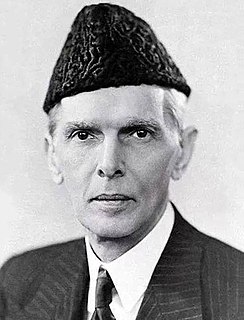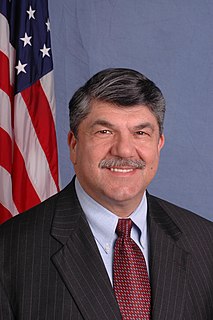A Quote by Slavoj Žižek
Ideology today is unfreedom which you sincerely personally experience as freedom.
Quote Topics
Related Quotes
We want freedom. We want freedom from the constraints of the cycles of the sun and the moon. We want freedom from drought and weather, freedom from the movement of game, the growth of plants, freedom from control from mendacious popes and kings, freedom from ideology, freedom from want. This idea of freeing ourselves has become the compass of the human journey.
Whatseems to take place outside ideology (to be precise, in the street), in reality takes place in ideology. What really takes place in ideology seems therefore to take place outside it. That is why those who are in ideology believe themselves by definition outside ideology: one of the effects of ideology is the practical denegation of the ideological character of ideology by ideology: ideology never says, 'I am ideological.'
A delicate balance is required to combat violence perpetrated in the name of a religion, an ideology or an economic system, while also safeguarding religious freedom, intellectual freedom and individual freedoms. But there is another temptation which we must especially guard against: the simplistic reductionism which sees only good or evil; or, if you will, the righteous and sinners.
The climate change debate is basically not about science; it is about ideology. It is not about global temperature; it is about the concept of human society. It is not about nature or scientific ecology; it is about environmentalism, about one - recently born - dirigistic and collectivistic ideology, which goes against freedom and free markets.
We must show that liberty is not merely one particular value but that it is the source and condition of most moral values. What a free society offers to the individual is much more than what he would be able to do if only he were free. We can therefore not fully appreciate the value of freedom until we know how a society of free men as a whole differs from one in which unfreedom prevails.
I say let's go back to a truer use of the word 'freedom.' Let's start with President Franklin Roosevelt's Four Freedoms: freedom of speech and expression, freedom of worship, freedom from want and freedom from fear. I would add the freedom to bargain collectively. Those freedoms are under attack today.
Every work of art (unless it is a psuedo-intellectualist work, a work already comprised in some ideology that it merely illustrates, as with Brecht) is outside ideology, is not reducible to ideology. Ideology circumscribes without penetrating it. The absence of ideology in a work does not mean an absence of ideas; on the contrary it fertilizes them.







































